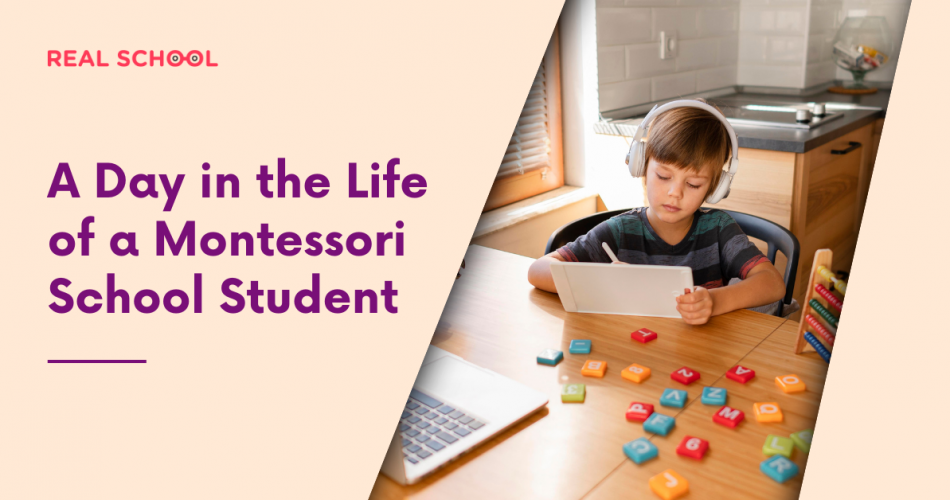Introduction
A Montessori school day is a captivating journey of exploration and self-discovery for young students. Dr. Maria Montessori’s educational philosophy emphasizes hands-on learning, independence, and child-centered education. In this article, we will take a glimpse into the life of a Montessori school student, experiencing the magic of their daily routines and educational adventures.
Morning Arrival and Greeting
As the day begins, students arrive at the Montessori school, greeted warmly by their teachers and fellow classmates. The morning routine encourages independence as children hang up their coats, place their belongings in designated areas, and choose their name tags for attendance.
Morning Circle and Group Time
The day often commences with a morning circle, where the students gather as a community. They engage in a brief group time, singing songs, sharing stories, and discussing the day’s activities. This time fosters a sense of belonging and sets a positive tone for the day ahead.
Independent Work Time
After the morning circle, students move to the heart of the Montessori classroom – the shelves of learning materials. Children are free to select their activities based on their interests and developmental needs. Whether it’s working with the Pink Tower to explore size or using the Movable Alphabet to create words, the focus is on hands-on learning and self-directed exploration.
Snack Time and Practical Life Activities
Mid-morning brings a moment for nourishment and community-building during snack time. Students gather together to enjoy a healthy snack, often served in a family-style manner. Following snack time, children engage in practical life activities like pouring water, washing dishes, or arranging flowers. These activities foster independence, coordination, and concentration.
Outdoor Play and Nature Exploration
Outdoor playtime is a cherished part of the Montessori school day. Children head outside to explore nature, play games, and develop gross motor skills. The outdoor environment provides ample opportunities for children to connect with the natural world, fostering a sense of wonder and appreciation for the environment.
Enrichment Activities
Montessori education includes various enrichment activities to provide a well-rounded educational experience. These activities may include art, music, yoga, foreign language lessons, and cultural studies. Enrichment activities encourage creativity, self-expression, and cultural awareness.
Lunchtime and Social Interaction
Lunchtime is a social and communal affair. Children enjoy their meals together, engaging in conversations and developing table manners. Teachers facilitate meaningful discussions, promoting communication skills and fostering a respectful mealtime environment.
Afternoon Work Cycle
After lunch, the afternoon work cycle begins. Children return to the Montessori materials, continuing their independent exploration and learning. Teachers offer guidance and support as needed, allowing students to delve deeper into their interests and projects.
Quiet Time and Rest
In the early afternoon, the classroom transitions to a quiet time or rest period. Soft music and dimmed lights create a peaceful ambiance. Children have the option to rest, read quietly, or engage in relaxing activities. This time allows children to recharge and prepares them for the remainder of the day.
Afternoon Circle and Reflection
The day nears its end with an afternoon circle, where students gather once again for reflection and closure. Children share their experiences, accomplishments, and what they’ve learned during the day. The afternoon circle fosters communication skills, self-awareness, and a sense of gratitude.
Dismissal and Farewell
As the school day concludes, children gather their belongings and prepare for dismissal. Teachers bid farewell to each student, celebrating their efforts and contributions throughout the day. The warm and nurturing environment ensures that each child feels valued and supported as they head home.
Conclusion
A day in the life of a Montessori school student is filled with moments of wonder, exploration, and joy. From the independence in choosing activities to the social interactions and reflection, Montessori education fosters a love for learning, a sense of community, and a profound understanding of the world around them. Each day in the Montessori classroom serves as a stepping stone in a child’s educational journey, igniting their curiosity and laying the foundation for a lifelong love of learning.
FAQs (Frequently Asked Questions)
How do Montessori teachers ensure individualized attention for each student during the day?
Are Montessori school days structured differently from traditional school days?
How does the Montessori approach promote a child’s sense of responsibility and independence?
Are field trips and excursions part of the Montessori school experience?
How does the Montessori philosophy support a child’s social and emotional development?







